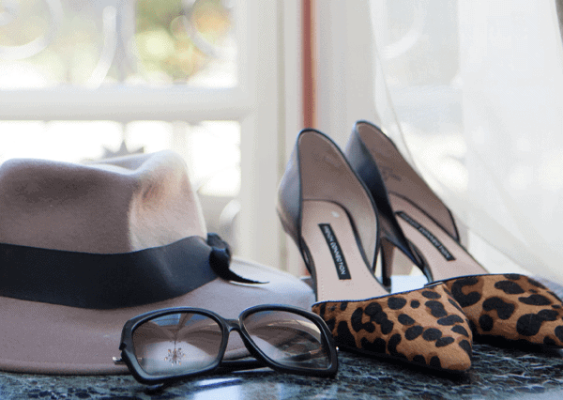The limits of my language mean the limits of my world.
I’m en route to the South of France, and all I can think about is my journey through the world of learning a new language. I must admit that I feel a little silly writing about being bilingual, since I’ve yet to master anything but English (and sometimes, that’s even questionable). However, about six years ago, I was sitting in a restaurant at the port in Monte Carlo with a table full of multilingual people. French, Italian, German, Russian and, of course, English, was floating around the table in this beautiful symphony.
Because I don’t like to feel excluded, especially when it’s due to lack of savoir faire, I decided in that moment that I would at least attempt to become bilingual.
Enter la français.
For the past six years, I have been immersing myself in the French culture and language. And while I can navigate the streets of Paris and ask for les toilettes and a bouteille de vin (what more does a girl need to know?), I am far from fluent. However, if you’re interested in learning a new language, it is my pleasure to offer you some of the ways I continue to strive towards becoming a bilingual woman.
First, choose your language. What cultures inspire you? What sound makes your heart melt? Don’t worry about practicality. Aim for passion. Once you’ve chosen your language, proceed to the following suggestions.
1. Listen to music. Madeleine Peyroux and Zaz are just some of the artists that infuse my home on a daily basis. I don’t always understand the lyrics, but something’s happening at a cellular level. I can feel it. Or, at least that’s what I keep telling myself as I dance around sipping my cafe.
2. Learn the basics. Vocabulary. Grammar. Verbs. Don’t worry about putting it all together just yet. Just learn what you can and one day the ingredients will meld and you’ll be speaking a new language.
3. The 10 Rule: 10 Minutes Listening/10 Minutes Speaking/10 Minutes Writing/10 words a day. Each day, I choose 10 flashcards. I study them. Use them. Say them. Write them. At the end of the day, I am 10 words smarter.
4. Watch movies with subtitles. Sure, the subtitles are distracting, but you’ll begin to understand how your new language works. Plus, you’ll understand a little more about the culture of the language through story telling. Plus, foreign films are nothing like Hollywood, a reason alone to watch more of them. Some of my favorite French movies are: Amélie, The Artist, and The Intouchables.
5. Make friends. My French friends have taught me more about the language than I could have possibly learned from French for Dummies. There’s nothing quite like immediate correction and learning a little slang that your college professor refused to teach you.
6. Hire a tutor. Each week, I show up at my tutor’s office, books in hand, homework completed and ready to dive into another lesson. Having a teacher who understands how your mind works and how it needs to work to master the language is invaluable.
7. Think in your new language. Even if you just know a few words, whenever you see that thing (noun) or take that action (verb), think of it in your new language. For example, when I see my dog, I no longer think dog. I think le chien. Whenever I drink, I don’t think “I am drinking,” I think, “Je bois.”
8. Speak as often as you can. I’m sure my daughter is tired of her maman asking her questions that she doesn’t understand or telling her je t’aime. But, maybe one day she’ll see that her being my sounding board was critical to my success in becoming a bilingual woman.
9. Go beyond the language. Enjoy the food, history, fashion, food and wine and art of the culture of where your new language originates. You can begin to understand the language by appreciating its culture.
10. Read books. I started with Le Petit Prince and now I’m pretending to read Madame Bovary. Even though I understand about every third or fourth word, something’s happening. I swear.
11. Use a pen and paper – send a love note, create your grocery list, write a poem – in your new language. Involving as much of your brain as possible in this new quest will prove to speed up the process.
12. Go to School. Four years ago, I packed my bags and headed off to a two week immersion program at the Coeur de France in Sancerre, about 2 hours south of France. Total immersion was evidenced by no English being spoken from the time I was picked up from the train station until the time I returned home. It’s never too late to go back to school. And, if French food and wine’s involved, all the better!
13. Immerse yourself. Buy a ticket, pack your bags and step off the plane and immerse yourself in the language and culture. Sure, you’ll feel lost. Yet, there’s nothing like needing something and being forced to communicate to help you step outside of your comfort zone. And, don’t be alarmed when you develop that deer in headlights look when someone speaks to you. It’s normal. You’re okay. Just remember that kindness and a smile is a universal language.
Who wants to join me in becoming a bilingual woman? I’d love to hear what language you’re passionate about learning and why. If you’re already bilingual, please share your tips to help us fellow friends who have a deep desire to expand our language repertoire in the comments below.
Bonne Chance,
Tonya
Self-Image Makeover
Live Your Life With Style, Flare, and Elegance
IF YOU LIKE IT, SHARE IT







Thanks for your post Tonya! As allows my dreams are rather high and varied but I would love to learn Spanish, Sign Language, and be able to read Greek and Hebrew so I could read the Bible in its original text. The number of Spanish speakers is gradually increasing and I would love to be able to serve the community so that is my dream focus point. My trouble is being able to set the time aside but I'm still working on finding the delicate balance and I hope to join you soon in learning another language!
Jasmyne,
I totally understand, but remember, just a little bit every day will add to your ability to speak another language. I've been told that by learning another language, the others come easier. Good luck to you!
And, I love high and varied dreams. It makes life fun!
Sorry, I meant *as always
J'adore ton blog, Tonya! So true! I speak few languages and I love it. You are so right about the desire. First I learned Italian, although everyone was telling me how much more practical Spanish was… Blah… Now I am learning Spanish because I have a friend who speaks it in a way that I even like it. I was sure that this language is ugly… Until he appeared 😉 So every language has its timing. Love your tips! All true and good.
A little tip from me: there is an app with an owl. Duolingo J'adore mon hibou!
Bisous chérie!
Alla: thanks for the tip. Checking it out now:)
Hi Tonya! I am also in love with French & think all your tips are spot on & a good reminder to me. I'm an English language teacher & for me practicing French was easy as I had a passion for it but now having to learn German can be a bit if a drag (my husband's Swiss German & we live there). I find having at least one friend who I feel totally confident speaking the language with (eg because they don't speak English) helps me improve the most. Also, talking to older people is easier at the beginning because they don't use as much slang & actually talk kind of like the textbooks teach. Anyway, I'm also in Provence right now & it's such a joy to use my French again.
Bonne vacance! Amuse-toi bien xx
Mireille: Oui! Passion for the language makes learning it so much more enjoyable:) Enjoy Provence!
Bonjour Tonya,
As you know, I already parle français fluently as I live in Québec, Canada; that said, I am IN LOVE totally with Italiano. I think my obsession for all things Italian is almost as strong as yours is for French! I'm aiming for trilingual, baby!
Ciao bella!
Hi Tonya!
Love your post, as always. I'm multilingual (and so is my husband!) and it totally rocks and opens so many doors. Another tip that I use off and on: put your Facebook and/or phone in the language you're learning. It slows you down, but forces your brain to adapt the new vocabulary. Plus it bewilders everyone around you...which is fun. 🙂
XO,
Laura
That's a great tip! I've swtiched my iphone to French on occasion, and it's quite amusing as well as a great learning tool!
Bisou!
Hola! Que gusto! Gracias, for the tips. I just started diving into Spanish this week 🙂 I've always felt limited by English, and was faced with that limitation on my vacation, where half of the room was bilingual or multilingual. Only the Americans were strictly English speakers. Made me very sad to miss out on the depth of conversation going on in French, Chinese, Korean, Spanish, and Swedish. So, I took my first real steps to becoming bilingual this week. I used to be proficient in German, but haven't used it in over a decade. It is coming back, in the form of german/spanish. Very amusing moments in my head this week, as I translate my life. Buen viaje. Chao!
Sybil: learning a new language is a humbling and exciting adventure. Best of luck to you.
salut ma chere,
I love italiano et francais!
immersing in 'dante's' language now...
ciao mi amore, bellisima!
Great tips! I learned Italian a few years ago by throwing myself into the culture... alone! I met my husband 10 years ago while touring Europe and he invited me to come stay at his place for a while. I bought the books to learn italian before I left and the best way to learn is throw yourself into it. Everyday when in Italy I would turn on the tv as soon as I woke up and played it all day until bedtime regardless of whether I watched it or not. A friend who spoke english suggested doing it and it really does help. I especially gravitated to programs like cooking shows where everything was very visual. Easier way to pick up words as you can see what they are doing and talking about. My girls are now sort of bilingual... they understand Italian but stopped speaking it when we moved back to Canada but when my husband went back to Italy for 3 months to work, we brought his brother over to stay with us and it has brought the Italian back out of my girls. He doesn't speak english so the girls have found their italian voices again out of necessity. It almost never correctly spoken but the effort they put in to talk to him is by far an improvement from before.
Good luck to everyone learning a new language... it really is rewarding when you can go on a trip and be able to ask for what you want in the local language.
#10 definitely helps!
I found an old student learner copy of Les Miserables and The Three Muskateers, both in French. The plan was for my then-fiance (a bilingual French-Canadian) to read them to me. After we parted ways, I still had the books, and every now and again, I pick them up and read a few pages. It's amazing how much I understand, even if I can't tell you what the individual words mean. I may not be able to speak what I'm reading, but just connecting with the text helps with absorbing the language.
I really wish I had taken more French in High School and kept it up to have become much more conversational with it. Growing up in Canada I heard it all the time.
Rheba: it's never too late to start again:)
Italian is my favourite language, though not practical outside of Italy. I love your tip about forgetting practicality!
French, I'm hanging on to by a thread for its usefulness and practicality. It's hard to keep it up, however, when there's no one to talk to! So I listen to Europe 1 and call it a day!
I just love your posts Tanya! Such gorgeous imagery and rich language. I want to lick your website like a spoon!
I've always dreamed of speaking another language - I have wild dreams of traveling through Italy and would love to know the language. I tried Rosetta Stone and it just felt ... boring. These tips are great and actually seem to make the process pleasurable. You rock lady!
Thanks for stopping by Melissa!
Rosetta Stone is boring, but it can teach you the essentials, but the best thing to do is hop on a plane and immerse yourself.
La Dolce Vita!
Tonya, I speak Persian and English fluently and it's been almost two years since I began studying French. I'm also very passionate about learning Italian and Spanish. Your suggestions are terrific and I particularly like the one about listening to music. What I do in addition is that whenever I find myself being addicted to a song (This happens esp. when I'm listening to cantanti italiani) I find its lyrics and its translation into English. Then I begin to listen to the song while I'm looking at the lyrics. I try to sing along with the singer and after a while the lyrics stick into my head :)!! This way I learn a bunch of words, the context in which they are used, and the way they are pronounced.
et je te remercie pour le temps que tu mets pour partager votre exprience avec nous! xo xo
These are fantastic suggestions. I studied French for several years in college, and despite being demi-franciaise have lost much of my language ability due to lack of practice. I am taking an impromptu trip to Paris and Provence next week (bought a plane ticket less than a week before departure - living in the moment!) and to prepare I'm watching one French movie a day to get me in the mood... and get me used to hearing the language again. I would add Coco Avant Chanel to your list. I've been asking my followers for suggestions on movies to watch, check out the great list that's being generated on my Facebook page: https://www.facebook.com/MartineHolston
I've studied nine languages so far (not including English), and *nothing* beats visiting—without a safety net—a country that speaks your chosen language. My husband is German, and despite the fact that we speak German at home sometimes, I learn better and faster when I'm in country than not.
Great tips, Tonya, so organized and so true!
Lots of people go by rules, but the organic way you approach it is invaluable.
Merci, chérie 🙂
I agree wholeheartedly with the importance of learning other languages. I've lived in Texas all my life, and although Spanish would be the most practical, I started learning German a few years ago as my husband was born in Germany. His parents speak German almost exclusively, and I know it means a great deal to them that I'm learning. It's funny, I always wondered what mysterious and important things they are over there saying to each other...now that I understand, it's things like, "Bob, bring me my purse." or "Bob, can you get me a towel." lol, nothing earth shattering, but I can understand them and that's a great feeling!
My husband and I went to Italy last year and I was determined to use as much Italian as I could. By the end of the week, I could order at any restaurant well enough that a couple from California sitting at a table next to us, after overhearing my husband and I speaking English, asked me how long I had lived in Italy!! I have fun telling them that was my first time there! That was such a compliment! I also noticed the waiters were much more attentive and nice when you attempted to speak their language. It made for a much more satisfying experience, to say the least. One note for ordering wine in Italy - everywhere I went I just ordered the house red - you CANNOT get a bad glass of wine anywhere. Almost every restaurant had their own house blend - Barberas, Piedmonts, Chiantis, all just delicious.
Spain is next! Encanta tu blog!
Tonya I swear you are my long lost twin, except you're living my dream life. I started to teach myself French about 3 years ago after several visits to St. Martin and St. Bart. I fell in love with the language and the people. I do a lot of the same tricks You mentioned and have even read Madame Bovery and The little Prince, in English but I'll get there. Thanks for constantly inspiring me to be the best me.